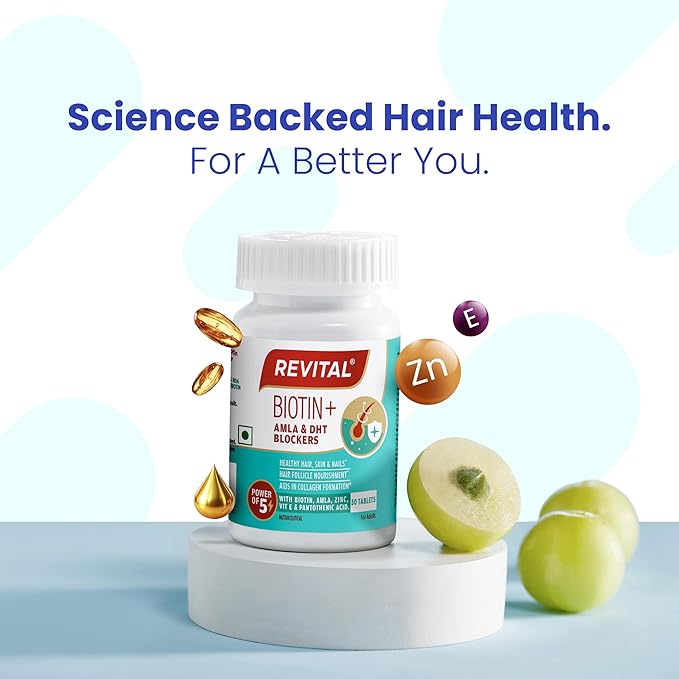9 Essential Tips for Healthier, Fuller Hair: A Complete Guide to Stronger, Shinier Locks:
Everyone wants healthy, full-looking hair that shines with vitality and strength. But achieving this isn’t just about fancy shampoos or expensive treatments — it starts from within and continues with the right care routine. If you want to prevent hair breakage, thinning, and dullness, here are 9 proven tips that can help you get healthier, fuller hair naturally.
1. Pump Up Your Protein Intake for Strong Hair:
Hair is primarily made of a protein called keratin, which means your diet plays a huge role in hair health. Consuming enough protein daily (about 45 grams minimum) ensures your body has the building blocks to grow strong hair strands.
Good protein sources include:
Lean meats like chicken and turkey
Fish such as salmon and tuna
Beans and legumes like lentils and chickpeas
Low-fat dairy products including milk and yogurt
Eggs
When your diet lacks protein, hair can become brittle, lose its color, and fall out easily. Including these foods not only supports hair growth but also improves scalp condition and reduces hair loss.
2. Don’t Ignore Zinc — Essential for Preventing Hair Shedding
Zinc is a trace mineral crucial for healthy hair growth. A deficiency can cause hair to shed excessively and slow down new growth. To naturally increase zinc in your diet, include nuts such as:
Brazil nuts
Walnuts
Cashews
Almonds
In addition, eating plenty of fresh vegetables, fruits, leafy greens, and drinking clean, filtered water helps maintain overall scalp and hair health. If needed, taking a multivitamin with zinc supplements can boost your levels, but always consult a healthcare professional first.
3. Omega-3 Fatty Acids for a Nourished Scalp
While omega-3 fatty acids don’t directly stimulate hair growth, they keep the scalp healthy by improving circulation and reducing inflammation around hair follicles. A healthy scalp creates the perfect environment for hair to thrive.
Sources of omega-3 include:
Cold-water fish like salmon, sardines, and herring
Flax seeds and chia seeds
Dairy products such as yogurt and cottage cheese
Nuts and seeds
Whole grain cereals and fresh salads
Try to incorporate these foods regularly in your diet for a natural scalp boost.
4. Understand Your Hair Type and Adjust Your Shampoo Routine
There’s no one-size-fits-all when it comes to shampoo frequency. Your hair type, scalp condition, and lifestyle will determine how often you should wash your hair.
If you have oily hair or sweat a lot, shampooing daily or every other day might be necessary.
For dry or brittle hair, shampooing once or twice a week is usually enough to retain natural oils.
Observe how your scalp and hair respond, and don’t be afraid to adjust your routine based on seasons or activity levels. Personalizing your shampoo schedule helps maintain moisture balance and prevents over-drying or greasiness.
5. Choose the Right Shampoo for Your Hair’s Needs
Using the wrong shampoo can do more harm than good. Some shampoos contain harsh detergents like ammonium lauryl sulfate or sodium lauryl sulfate that strip hair of natural oils, leading to dryness and damage.
Here’s what to look for in a shampoo:
Formulated specifically for your hair type (oily, dry, normal)
Addresses your hair concerns, such as dandruff or scalp sensitivity
Free from harsh sulfates and parabens
Mild and moisturizing ingredients that protect hair fibers
Remember, expensive shampoos aren’t always better. Focus on the ingredients and suitability rather than price tags.
6. Use Conditioner to Keep Hair Soft and Manageable
Conditioning is an essential step to prevent dryness, tangling, and breakage after shampooing. You can either use a separate conditioner or choose a shampoo with a built-in conditioner.
Tips for effective conditioning:
Apply conditioner evenly, focusing on the mid-lengths and ends (avoid roots if your hair tends to get oily)
Leave it on for 2-3 minutes before rinsing to allow it to penetrate and soften the hair shaft
Experiment to see how often your hair needs conditioning — it may vary from every wash to every other wash
A good conditioner adds moisture, smoothness, and shine to your hair.
7. Wash and Brush Hair with Care to Prevent Damage
Hair is at its weakest when wet, so it requires gentle handling. Follow these tips to avoid unnecessary breakage:
Don’t wash hair more than once a day, as excessive washing can strip natural oils.
Use just enough shampoo to cover your hair, no need to over-apply.
Avoid very hot or very cold water; lukewarm water is best.
After washing, gently pat your hair dry instead of rubbing harshly with a towel.
Use a wide-tooth comb to detangle wet hair slowly and carefully — avoid vigorous brushing on wet hair as it can cause breakage.
These habits help preserve hair strength and reduce split ends.
8. Maintain Healthy Hair Practices for Long-Term Benefits
Certain daily habits can significantly impact hair health:
When blow-drying, start with the lowest heat setting and increase only if necessary to prevent heat damage.
Whenever possible, allow your hair to air dry naturally.
Change the position of hair clips and pins to avoid repeated stress on the same strands, reducing breakage.
If you color your hair, choose shades close to your natural color to minimize damage.
Regular scalp massages can boost blood flow to hair follicles, promoting hair growth and health.
Trim your hair every 10 to 12 weeks to remove split ends and maintain healthy-looking hair.
9. Avoid Harmful Habits and External Factors That Damage Hair
Some lifestyle and environmental factors can negatively affect your hair:
Overconsumption of alcohol and crash diets can deplete essential nutrients needed for hair growth.
Stress, both physical and emotional, can cause hair thinning and shedding.
Certain medications such as blood thinners, drugs for heart conditions, depression, and arthritis might impact hair health.
Excessive use of harsh shampoos, styling products, and heat tools weakens hair over time.
By addressing these causes and making healthier lifestyle choices, you can protect and improve your hair’s condition.
Final Thoughts
While genetics play a role in your hair’s texture and growth, adopting a healthy diet, selecting the right hair care products, and practicing gentle grooming can make a huge difference. Use these 9 essential tips for healthier fuller hair consistently to enjoy beautiful, strong, and shiny hair that turns heads every day.

